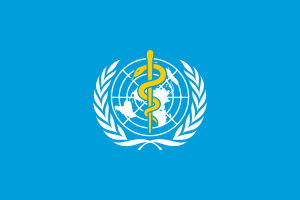 Image via Wikipedia
Image via WikipediaThe World Health Organization approved a three-year plan to eradicate polio on May 21st, bringing a two-decade battle to a critical juncture as funding falls short and the disease is on a surprising upturn.
Member nations of the WHO, the United Nations health body, approved the plan at an annual meeting in Geneva. It calls for spending $2.6 billion over the next three years on running polio vaccination programs that will focus on Nigeria, India and several other countries world-wide where polio remains most deeply rooted.
Delegates at the meeting highlighted the challenge now: The program is still short $1.3 billion as the global economic slump strains the coffers of the U.S., U.K. and other donors.
"Cash is kind of scarce and there are a lot of competing priorities," said Steve Cochi, senior adviser at the U.S. Centers for Disease Control and Prevention, one of the main sponsors of the polio program, in an interview. Dr. Cochi didn't attend the Geneva meeting, called the World Health Assembly.
The new plan comes after a year of setbacks for the polio-eradication program, which WHO, Rotary International, Unicef and others have waged for 22 years, cutting down the number of cases globally to under 1,600, from 350,000 in 1988. Last year, it succeeded in reducing polio in Nigeria, which has been a hot spot for the disease.
The program has been criticized over the years, however, for missed deadlines as the disease eludes eradication, raising questions among donor nations over whether they should continue to provide funding. If the effort fails to make significant gains under the latest timeline, donors and polio experts say, funding could dry up.
Outbreaks in Africa last year highlighted how hard it remains to kill off a disease that spreads nearly silently. Polio shows effects—usually paralysis—in just one of every 200 people that it infects.
On Thursday, the WHO said it has recorded 202 polio cases world-wide in 2010, down from the 436 cases in the same period last year. Half of this year's cases were in Tajikistan, which had been polio-free since 1998. Fears that it could spread further have sparked vaccination campaigns in neighboring counties, including Uzbekistan and Kyrgyzstan.
Dr. Cochi said he expects the cases in Tajikistan could grow to between 200 and 300 before polio is fully controlled there.
The polio funding challenges come as other global health programs struggle to raise the money they need to continue in force. On June 18, the WHO will host a meeting in Geneva with current and potential polio donors, including China, Russia and Brazil, according to Sona Bari, spokeswoman for the polio-eradication initiative at the WHO.
Also, the assembly adopted a resolution to rein in pneumonia, which it said kills over 1.6 million children a year. It called for programs to limit the disease by encouraging breastfeeding and promoting hand washing and vaccinations. The resolution comes as health groups are introducing a new vaccine for preventing Pneumococcal disease, which causes pneumonia.
![Reblog this post [with Zemanta]](http://img.zemanta.com/reblog_a.png?x-id=c6bdb11b-e337-4942-b00a-1a6b5ed384ad)
No comments:
Post a Comment